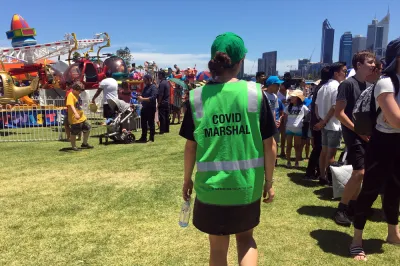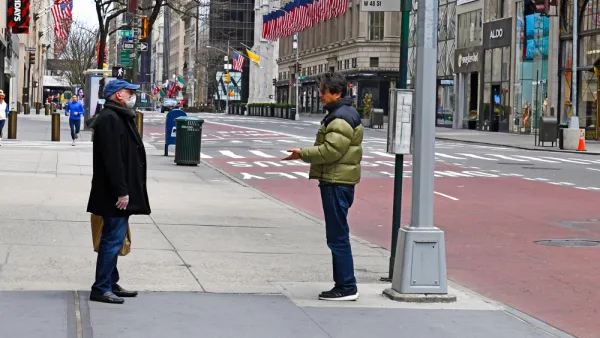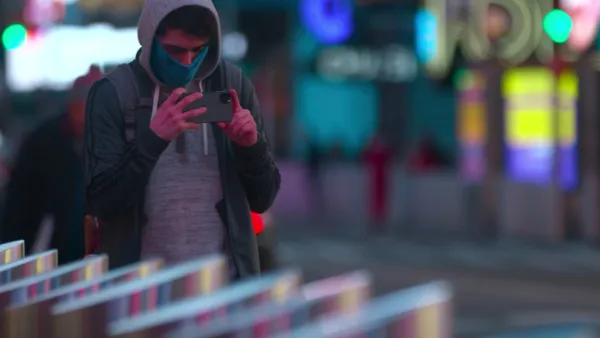As community events start move off-screen and become available to the public again, here are five ways organizers can ensure public health and safety.

2020 was a rough year for everyone. Families canceled weddings, reunions, and trips, people stopped going to events like concerts and sports competitions, and City Councils started holding public hearings on Zoom and other digital forums.
Now that cities and events are opening up, many people are excited to participate in public gatherings again. Even those who still have health concerns are often willing to attend if organizers take basic precautions.
Ultimately, every person is responsible for protecting their own health. However, here are five steps everyone involved in the planning and organizing public events can take to ensure efficiency and safety for everyone involved.
1. Check Public Ordinances
Federal, state, and city leaders have responded differently to the pandemic across America. What these responses have in common is a concern for the public’s health and a desire to maintain each citizen’s privacy. These two goals should be at the forefront of any event organizer's mind.
When planning an event, organizers are responsible for ensuring it follows legal guidelines. Guests coming to the event will likely not check these ordinances themselves—they will assume that large events are legal.
Event organizers should stay updated on the city's response to the spread of illness and respect their guests by letting them know how their event will follow those guidelines.
Some clients working with event planners may be concerned about the possibility of being sued should a guest contract an illness at their event. It is very unlikely that this could happen.
However, it is good practice to have guests sign a waiver stating that they are aware of any health risks caused by their attendance. Clients who are still concerned should contact a lawyer.
While social distancing is recommended to stop the spread of viral disease, it can also have harmful side effects. Event organizers can take heart knowing that their work is combating the high levels of loneliness and depression that many isolated people now face.
2. Make Expectations Clear
After checking local ordinances, it is up to the event planner and their client to add additional rules for the event. What seems best to them? As they make these decisions, they should consider who they will invite to the event. What will their guests expect, and what might take them by surprise?
Spelling out clear expectations in general advertising and personal invitations is crucial to hosting a successful event. If event organizers prefer that all their guests wear face coverings, they should make that clear before the event. They should also communicate about whether the event will not require masks, so guests can make an informed choice about attending.
Letting your guests know what is waiting to meet them will ensure a smooth and pleasant experience for all involved.
Whatever their personal preferences, it’s important for event planners to note that potential guests are sharply divided over current safety measures like mask-wearing and vaccination.
Keep this in mind when planning your event, and consider offering multiple engagement options. That way, guests from all points of view can enjoy your event.
3. Use an Outdoor Venue
One of the best ways to meet in the middle is to move the event outside. While outside events do run the risk of inclement weather, they also give guests more space.
Being in the open air will make many guests feel more comfortable during rises in viral infection and increase the number of people willing to come to an event.
Some functions require a stage for performances. Organizers planning an outdoor event should consider setting up an arena stage, platform stage, or open-air theater. Moving outside doesn’t mean limiting what can be done, so long as you know all your options when it comes to the venue.
Some guests could be concerned about attending even an outdoor event. However, research suggests that spending time outside reduces stress and strengthens physical immunity, fortifying the body against disease and viral attacks. Moving your event outside will assure guests of their safety while strengthening their bodies.
If the event is during the day, it will also give guests time to soak up some sunshine. Most people are deficient in vitamin D, so spending time in the sun will strengthen their immune systems and lift their spirits.
4. Consider Hygiene
During flu season and especially since the pandemic, promoting good hygiene is more important than ever. Bringing groups of people together can be stressful while viral illnesses are spreading. Here are a few tips to level up guests' confidence and help ensure their well-being:
- Incorporate hand-washing stations into your event
- Scatter hand sanitizer around the venue
- Use a seating chart
- Serve guests individually instead of with a self-serve buffet
- Have drink refill pitchers assigned to individual tables
- Wrap food packages individually
If an upcoming event includes singing, guests may want to know if extra precautions are in place. Event organizers can consider requesting that guests wear face masks at musical events. However, some scientific evidence suggests that singing does not increase the risk of viral transmission.
Regardless of their decision, event organizers should not shy away from hosting musical events and concerts. Singing has impressive health benefits, especially when done in groups. It improves lung function, increases people’s sense of connection, relieves stress, and stimulates the immune system.
With just a few systems in place, event organizers can ensure guests remain healthy and thoroughly enjoy their next event experience.
5. Serve Healthy Food
Many event planners serve alcohol, dessert, and fattening foods as a special treat to those attending. While this is the norm, it does guests a disservice during times of high risk of disease.
Research shows that good nutrition promotes gut health, an effective immune system, and clear thinking. In contrast, high levels of sugar and alcohol consumption negatively impact health. When planning their next event, event organizers should consider crafting a menu that is both delicious and strengthens guests’ vitality.
Event planners don’t have to forgo sweet treats entirely, but it’s wise for them to consider a more balanced menu. Guests will feel better after an event where they eat well, and they’ll look forward to the next one.
Come Together With Confidence
While each guest is responsible for their personal health, event planners can be strategic about the situations guests find themselves in.
Upcoming events should follow safety guidelines and also be designed to improve guests’ overall well-being and peace of mind. Event planners can follow these guidelines to offer guests a safe and memorable experience.

National Parks Layoffs Will Cause Communities to Lose Billions
Thousands of essential park workers were laid off this week, just before the busy spring break season.

Retro-silient?: America’s First “Eco-burb,” The Woodlands Turns 50
A master-planned community north of Houston offers lessons on green infrastructure and resilient design, but falls short of its founder’s lofty affordability and walkability goals.

Delivering for America Plan Will Downgrade Mail Service in at Least 49.5 Percent of Zip Codes
Republican and Democrat lawmakers criticize the plan for its disproportionate negative impact on rural communities.

Test News Post 1
This is a summary

Test News Headline 46
Test for the image on the front page.

Balancing Bombs and Butterflies: How the National Guard Protects a Rare Species
The National Guard at Fort Indiantown Gap uses GIS technology and land management strategies to balance military training with conservation efforts, ensuring the survival of the rare eastern regal fritillary butterfly.
Urban Design for Planners 1: Software Tools
This six-course series explores essential urban design concepts using open source software and equips planners with the tools they need to participate fully in the urban design process.
Planning for Universal Design
Learn the tools for implementing Universal Design in planning regulations.
EMC Planning Group, Inc.
Planetizen
Planetizen
Mpact (formerly Rail~Volution)
Great Falls Development Authority, Inc.
HUDs Office of Policy Development and Research
NYU Wagner Graduate School of Public Service






























